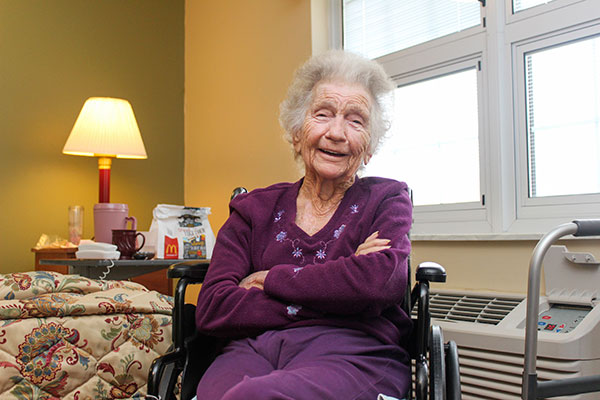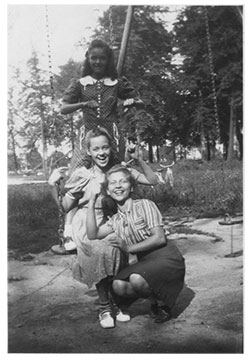
Literature is filled with tales of orphans, wards and foundlings making their way in the world — Harry Potter, Superman and Oliver Twist quickly come to mind. History is equally full of such stories — Babe Ruth, Marilyn Monroe and J.R.R. Tolkien are, among countless others, people who were orphans and overcame long odds.
When we think of life in an orphanage, we likely envision hundreds of children, malnourished and abused, eking out an existence in desperation. For Juanita Duncan and other children who resided at the National Orphans Home of Junior Order of United American Mechanics, quite the opposite was true. However, before she could experience life at its fullest, she had to overcome hardship, sadness and uncertainty.
Juanita was the oldest of three children who came of age during the Great Depression. At the age of 10, she became the caregiver for her gravely ill father. When he died two years later, Juanita and her siblings were sent to the Junior Order Home in Lexington, North Carolina.
The Great Depression wrought havoc upon America. Unemployment exceeded 25 percent. People migrated thousands of miles with the hope that work might exist elsewhere. Parents abandoned their children when they could not provide sustenance for them. The home was bursting at the seams, filled to capacity. If adjusting to orphanage life wasn’t difficult enough, Juanita and her siblings were soon transferred to another Junior Order Home in Tiffin, Ohio.
 The home in Tiffin was a model; unlike anything one would ever imagine an orphanage to be. Housing more than 1,600 children, the home focused on vocational education. Everyone worked. Everyone had a job to do. Each child was expected to contribute to the community through acts of daily living, whether it meant working in the garden, the laundry, the dining hall or helping out with the younger children. No stranger to working hard, Juanita thrived.
The home in Tiffin was a model; unlike anything one would ever imagine an orphanage to be. Housing more than 1,600 children, the home focused on vocational education. Everyone worked. Everyone had a job to do. Each child was expected to contribute to the community through acts of daily living, whether it meant working in the garden, the laundry, the dining hall or helping out with the younger children. No stranger to working hard, Juanita thrived.
Juanita also learned that life did not necessarily mean hard times. There was plenty of food. She enjoyed school and studied music. The children traveled, attended church and played sports. She experienced her first exposure to normalcy, albeit with a very large and extended family. She had never felt less destitute.
“I felt special and proud,” she said. “The home taught us all to be good citizens and good human beings.”
When Juanita turned 18, she relocated to Dayton where she’s lived and worked for the past 75 years. Incredibly, she met and befriended several of Dayton’s most famous residents — Orville Wright, whose bicycle shop happened to be next door; Charles Kettering, an inventor widely credited with creating leaded gasoline and the electrical starting motor (among 184 other patents); and John Patterson, president of National Cash Register (son of the Patterson of Wright-Patterson Air Force Base).
She’s made her own way in the world and never stopped working hard, and wouldn’t tell you that life’s been easy. But her experience with the home made life bearable and, in many ways, gave her opportunities she might have never had otherwise. She became an accomplished musician, playing with orchestras in Philadelphia, New York, Washington, D.C. and Dayton. She married, raised a family, and experienced a sense of duty, worship and culture. With her spritely personality, she rose above circumstances that could have otherwise brought sadness and pain.
While visiting us recently as a Fast Track Rehab patient at Trinity Community at Fairborn (formerly Patriot Ridge) in Fairborn, Ohio, Juanita considers her life to be fulfilled and enriched, strengthened by her experience in the orphanage. It’s all been worth the struggle. Living a purposeful life, intent on staying connected to others and focused on God is the way Juanita appreciates life. And why shouldn’t she? She’s a great example of living a life transformed by love and self-determination in spite of adversity.
